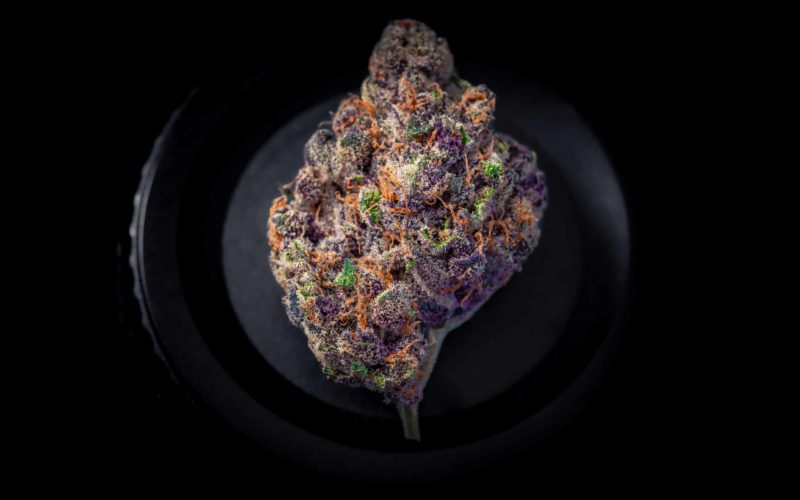Business
Pennsylvania Marijuana Pardon Project Finds Errors in Pardon Applications

After the Pennsylvania Marijuana Pardon Project window closed on Sept. 30, officials have found small errors and typos that could possibly affect applications.
The Pennsylvania Marijuana Pardon Project launched in September, and approximately 3,500 applications were submitted for consideration. While these applications will now wait for official reviews to be conducted, it appears that many submitted their applications with typos.
Board of Pardons (BOP) Secretary Celeste Trusty said that numerous applicants have submitted inaccurate information, much of which were simple typos or other small errors. “We want to ensure that applicants are not deemed ineligible for the PA Marijuana Pardon Project because of a simple typo,” Trusty said. “Our partners in the PA Marijuana Pardon Project are going above and beyond to make this a successful process for as many eligible applicants as possible.”
In its most recent BOP meeting held on Oct. 13, members discussed how applications came from 66 out of the 67 counties in the state. Most applications were from residents in Dauphin County (298 applications) and York County (284), followed by Allegheny (212), and Philadelphia (197) among the top.
According to Pennsylvania Cannabis Coalition Executive Director Meredith Buettner, the program is much needed in the state. “This is really crucial for a lot of Pennsylvanians with non-violent marijuana-related offenses on their record. It may prevent them from educational opportunities, job opportunities, housing opportunities, so this was an exciting effort for a lot of Pennsylvanians,” Buettner told Fox43.
“It really is absolutely incredible to see that as we work through the data to find out who is eligible and who is ineligible, we can hopefully impact so many people’s lives in the next few months and be able to help them get on their way to a clear record,” Trusty told Fox43.
She also added that the next step is for the BOP to start looking at each application. “The board is going to take a look [and] review [them] and then they get to vote on moving that forward to the governor,” Trusty explained.
The Pennsylvania Marijuana Pardon Project was created in partnership with Lt. Governor John Fetterman and Gov. Tom Wolf. The application window closed on Sept. 30 in what’s described as a “one-time, large-scale pardon effort,” however those who did not make the deadline can still apply for an expedited pardon.
The timeline for the program estimates that following the application window (Sept. 1-30), the board would meet on Oct. 13 to decide if applicants received a public hearing. Next on Dec. 13-16, the board will vote on applications to send to the governor for a pardon. On Dec. 16 and afterwards, those applications will be sent to the governor, but no time estimate was provided. “The governor is not mandated to act in a specific amount of time after receiving the recommendations,” the program states on its website. Gov. Wolf’s term ends on Jan. 17, 2023, which is why the application window was so brief, the program website adds.
Fetterman, who is currently running for Pennsylvania Senate, has been a staunch proponent of cannabis legalization and its effect on the residents of his state. At the recent 5th Annual Cannabis Opportunities Policy Summit, he described Pennsylvania as “a place for second chances,” which will “help people get pardons quickly for stupid weed convictions.”
At the beginning of September, Fetterman sent out a press release detailing the necessity of legalization from President Joe Biden. “It’s long past time that we finally decriminalize marijuana,” Fetterman said. “The president needs to use his executive authority to begin descheduling marijuana, I would love to see him do this prior to his visit to Pittsburgh. This is just common sense and Pennsylvanians overwhelmingly support decriminalizing marijuana.”
Later, Fetterman mentioned a “great conversation” with President Biden about cannabis policy. Two weeks after the Pennsylvania Marijuana Pardon Project went live, Biden’s monumental announcement for cannabis pardons was announced.
Source: https://hightimes.com/news/pennsylvania-marijuana-pardon-project-finds-errors-in-pardon-applications/
Business
New Mexico cannabis operator fined, loses license for alleged BioTrack fraud

New Mexico regulators fined a cannabis operator nearly $300,000 and revoked its license after the company allegedly created fake reports in the state’s traceability software.
The New Mexico Cannabis Control Division (CCD) accused marijuana manufacturer and retailer Golden Roots of 11 violations, according to Albuquerque Business First.
Golden Roots operates the The Cannabis Revolution Dispensary.
The majority of the violations are related to the Albuquerque company’s improper use of BioTrack, which has been New Mexico’s track-and-trace vendor since 2015.
The CCD alleges Golden Roots reported marijuana production only two months after it had received its vertically integrated license, according to Albuquerque Business First.
Because cannabis takes longer than two months to be cultivated, the CCD was suspicious of the report.
After inspecting the company’s premises, the CCD alleged Golden Roots reported cultivation, transportation and sales in BioTrack but wasn’t able to provide officers who inspected the site evidence that the operator was cultivating cannabis.
In April, the CCD revoked Golden Roots’ license and issued a $10,000 fine, according to the news outlet.
The company requested a hearing, which the regulator scheduled for Sept. 1.
At the hearing, the CCD testified that the company’s dried-cannabis weights in BioTrack were suspicious because they didn’t seem to accurately reflect how much weight marijuana loses as it dries.
Company employees also poorly accounted for why they were making adjustments in the system of up to 24 pounds of cannabis, making comments such as “bad” or “mistake” in the software, Albuquerque Business First reported.
Golden Roots was fined $298,972.05 – the amount regulators allege the company made selling products that weren’t properly accounted for in BioTrack.
The CCD has been cracking down on cannabis operators accused of selling products procured from out-of-state or not grown legally:
- Regulators alleged in August that Albuquerque dispensary Sawmill Sweet Leaf sold out-of-state products and didn’t have a license for extraction.
- Paradise Exotics Distro lost its license in July after regulators alleged the company sold products made in California.
Golden Roots was the first alleged rulebreaker in New Mexico to be asked to pay a large fine.
Source: https://mjbizdaily.com/new-mexico-cannabis-operator-fined-loses-license-for-alleged-biotrack-fraud/
Business
Marijuana companies suing US attorney general in federal prohibition challenge

Four marijuana companies, including a multistate operator, have filed a lawsuit against U.S. Attorney General Merrick Garland in which they allege the federal MJ prohibition under the Controlled Substances Act is no longer constitutional.
According to the complaint, filed Thursday in U.S. District Court in Massachusetts, retailer Canna Provisions, Treevit delivery service CEO Gyasi Sellers, cultivator Wiseacre Farm and MSO Verano Holdings Corp. are all harmed by “the federal government’s unconstitutional ban on cultivating, manufacturing, distributing, or possessing intrastate marijuana.”
Verano is headquartered in Chicago but has operations in Massachusetts; the other three operators are based in Massachusetts.
The lawsuit seeks a ruling that the “Controlled Substances Act is unconstitutional as applied to the intrastate cultivation, manufacture, possession, and distribution of marijuana pursuant to state law.”
The companies want the case to go before the U.S. Supreme Court.
They hired prominent law firm Boies Schiller Flexner to represent them.
The New York-based firm’s principal is David Boies, whose former clients include Microsoft, former presidential candidate Al Gore and Elizabeth Holmes’ disgraced startup Theranos.
Similar challenges to the federal Controlled Substances Act (CSA) have failed.
One such challenge led to a landmark Supreme Court decision in 2005.
In Gonzalez vs. Raich, the highest court in the United States ruled in a 6-3 decision that the commerce clause of the U.S. Constitution gave Congress the power to outlaw marijuana federally, even though state laws allow the cultivation and sale of cannabis.
In the 18 years since that ruling, 23 states and the District of Columbia have legalized adult-use marijuana and the federal government has allowed a multibillion-dollar cannabis industry to thrive.
Since both Congress and the U.S. Department of Justice, currently headed by Garland, have declined to intervene in state-licensed marijuana markets, the key facts that led to the Supreme Court’s 2005 ruling “no longer apply,” Boies said in a statement Thursday.
“The Supreme Court has since made clear that the federal government lacks the authority to regulate purely intrastate commerce,” Boies said.
“Moreover, the facts on which those precedents are based are no longer true.”
Verano President Darren Weiss said in a statement the company is “prepared to bring this case all the way to the Supreme Court in order to align federal law with how Congress has acted for years.”
While the Biden administration’s push to reschedule marijuana would help solve marijuana operators’ federal tax woes, neither rescheduling nor modest Congressional reforms such as the SAFER Banking Act “solve the fundamental issue,” Weiss added.
“The application of the CSA to lawful state-run cannabis business is an unconstitutional overreach on state sovereignty that has led to decades of harm, failed businesses, lost jobs, and unsafe working conditions.”
Business
Alabama to make another attempt Dec. 1 to award medical cannabis licenses

Alabama regulators are targeting Dec. 1 to award the first batch of medical cannabis business licenses after the agency’s first two attempts were scrapped because of scoring errors and litigation.
The first licenses will be awarded to individual cultivators, delivery providers, processors, dispensaries and state testing labs, according to the Alabama Medical Cannabis Commission (AMCC).
Then, on Dec. 12, the AMCC will award licenses for vertically integrated operations, a designation set primarily for multistate operators.
Licenses are expected to be handed out 28 days after they have been awarded, so MMJ production could begin in early January, according to the Alabama Daily News.
That means MMJ products could be available for patients around early March, an AMCC spokesperson told the media outlet.
Regulators initially awarded 21 business licenses in June, only to void them after applicants alleged inconsistencies with how the applications were scored.
Then, in August, the state awarded 24 different licenses – 19 went to June recipients – only to reverse themselves again and scratch those licenses after spurned applicants filed lawsuits.
A state judge dismissed a lawsuit filed by Chicago-based MSO Verano Holdings Corp., but another lawsuit is pending.
Source: https://mjbizdaily.com/alabama-plans-to-award-medical-cannabis-licenses-dec-1/
-

 Business2 years ago
Business2 years agoPot Odor Does Not Justify Probable Cause for Vehicle Searches, Minnesota Court Affirms
-

 Business2 years ago
Business2 years agoNew Mexico cannabis operator fined, loses license for alleged BioTrack fraud
-

 Business2 years ago
Business2 years agoAlabama to make another attempt Dec. 1 to award medical cannabis licenses
-

 Business2 years ago
Business2 years agoWashington State Pays Out $9.4 Million in Refunds Relating to Drug Convictions
-

 Business2 years ago
Business2 years agoMarijuana companies suing US attorney general in federal prohibition challenge
-

 Business2 years ago
Business2 years agoLegal Marijuana Handed A Nothing Burger From NY State
-

 Business2 years ago
Business2 years agoCan Cannabis Help Seasonal Depression
-

 Blogs2 years ago
Blogs2 years agoCannabis Art Is Flourishing On Etsy













